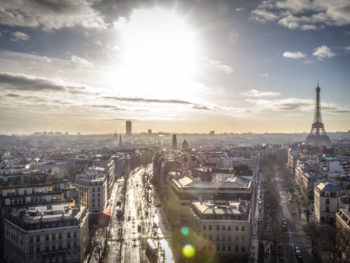Covid-19 could increase pollution long term, expert warns
Air pollution around the world is reducing due to Covid-19’s impact on the global economy, but the eventual recovery could leave our environment worse off and further behind in reducing emissions unless lessons are learnt.

A subsequent emissions surge as economies recover is likely to leave the environment worse off, according to Gabriel da Silva
Gabriel da Silva, senior lecturer in the Department of Chemical and Biomolecular Engineering at the University of Melbourne, said in an article on the university’s website that the current fall in air pollution is observable from space and this is the main way that scientists have been able to track it.
By combining satellite observations with atmospheric modelling, the European Union’s Earth observation programme, Copernicus, has now shown that PM2.5 levels over China for February were substantially lower than for the previous three years.
As global economic activity slows we can also expect a drop in CO2 emissions. The problem is that unlike many other air pollutants, CO2 exists in the atmosphere for a long time – around a hundred years. That means a short-term drop in emissions won’t cause a decrease in its atmospheric concentration.
And although air pollution is dropping right now, in the longer-term Covid-19 may ultimately be bad news for the environment. During the global financial crisis, a brief drop in greenhouse gas emissions was more than offset by a sharp rebound in pollution as the world economy recovered.
Da Silva also warned that a weak global economy also threatens investment in renewable energy sources, particularly given the availability of cheap oil.
He added: “There is also a risk that environmental policies will be relaxed during this time of crisis, as is already starting to happen in the US. Enforcement may also become more difficult.
“If the present crisis isn’t seen as an opportunity for widespread structural change, we won’t be breathing easier for long.
“Our environment may end up in even worse shape than ever.”

